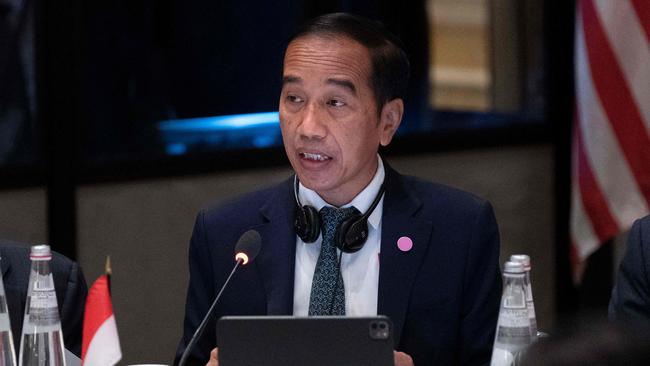President Joko Widodo locks in Moscow, Kyiv peace mission
Indonesia has confirmed President Joko Widodo will travel to Kyiv after his visit to Moscow next week ‘to push for the spirit of peace’.

Indonesia has confirmed President Joko Widodo will travel to Kyiv after his visit to Moscow next week “to push for the spirit of peace”, as the current G20 chairman seeks a mediation role in the Ukraine crisis to try to head off a global food crisis.
After days of speculation, Foreign Minister Retno Marsudi said on Wednesday that President Jokowi (as he is known) would travel to the Ukrainian capital to meet President Volodymyr Zelensky after talks with his Russian counterpart Vladimir Putin on June 30, and claimed he would be the “first Asian leader to visit these two countries” back to back since the start of the conflict.
“We understand that the situation is very, very complicated. The world also understands the complexity of the problem,” Ms Retno told a media briefing in Jakarta.
“(But) as president of the G20 … President Jokowi chooses to try to contribute, and not stay silent.”
Ms Retno said Mr Jokowi’s talks with both leaders would focus on humanitarian issues, and on “trying to make a contribution to solve the food crisis, the impact of which is being felt by all countries”.
“The world is facing a situation that is very difficult, which in turn has pushed Indonesia’s presidency to be more active, to make G20 a catalyst of global economic recovery,” she added.
On Tuesday, Indonesia claimed its first major achievement as G20 president with the announcement of a $US1.1bn funding pool for future pandemic preparedness.
The Financial Intermediary Fund will be managed by the World Bank to help plug a $US10bn World Health Organisation funding gap, and to enable “quick and just access” to vaccines, therapeutics and diagnostics, Indonesian Health Minister Budi Gunadi said.
But the rising cost of food, energy and finance has now overtaken health as the dominant global concern – particularly among poor and developing nations – as the effects of the ongoing war in Ukraine exacerbate economic stresses caused by the pandemic.
Russia is the world’s largest natural gas exporter and second largest oil exporter. Russia and Ukraine are also two of the world’s most productive bread baskets, providing 30 per cent of the world’s wheat and barley, one fifth of its maize, and more than half of its sunflower oil.
But Russia’s blockade of the Ukrainian port city of Odessa has dramatically reduced the shipment volumes out of the war-torn nation, raising fears of looming food shortages, while Western sanctions against Moscow have sparked concerns of a coming energy shock.




To join the conversation, please log in. Don't have an account? Register
Join the conversation, you are commenting as Logout